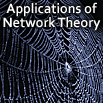Speaker
Xin Lü
(Karolinska Institute)
Description
Respondent-driven sampling (RDS) circumvents the
difficulties in sampling hard-to-reach population by using
their social networks. It has been shown that the RDS is an
effective method for generating handful sample. What’s more,
under certain assumptions, unbiased estimates for population
traits can be generated by weighting
the sample with respondents’ personal network sizes. For
these advantages the RDS has been widely used in HIV-related
studies among high risk populations in recent years.
However, despite the quite acknowledged evidences that most
social networks are directed, all existing RDS estimators
are based on assumption that the social relationships
between respondents are reciprocal and consequently the RDS
recruitment process happens on undirected networks. To
investigate the potential bias brought by network
directedness, and further generalize the RDS method, we
propose several estimators that work both on directed
networks and undirected networks. Performances of estimators
are compared by RDS simulations on networks with different
degrees of directedness, assortativity, indegree-outdegree
correlation and homophily. Results reveal that the most
robust estimator is the one which assumes the amount of
individuals with trait A in the sample is proportional to
the total indegree for individuals of group A in the
population. A sensitivity test method is proposed when the
sample indegree is not known. Given the widely existence of
irreciprocal relationships among social society, we suggest
the new estimator to be used in future RDS studies.

